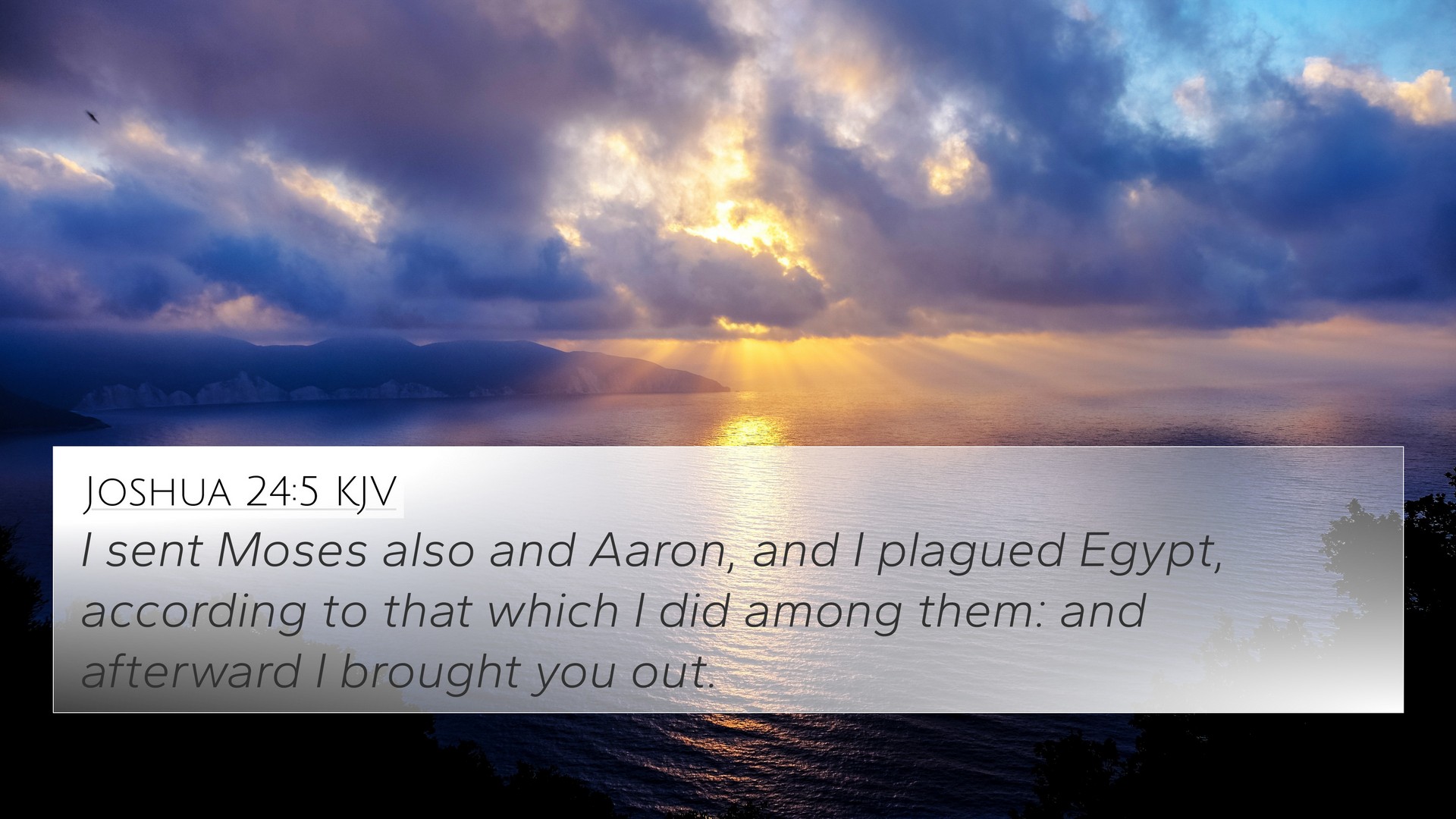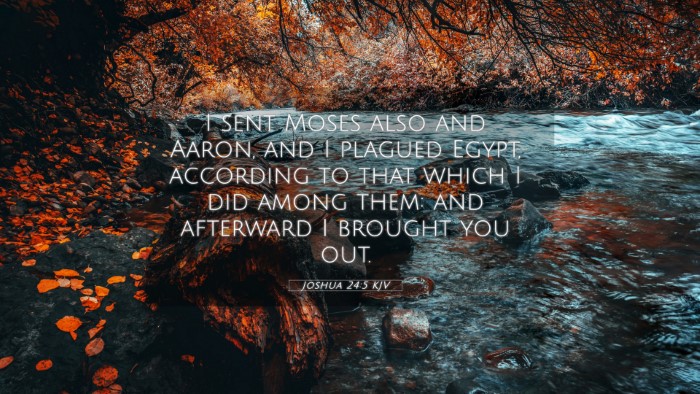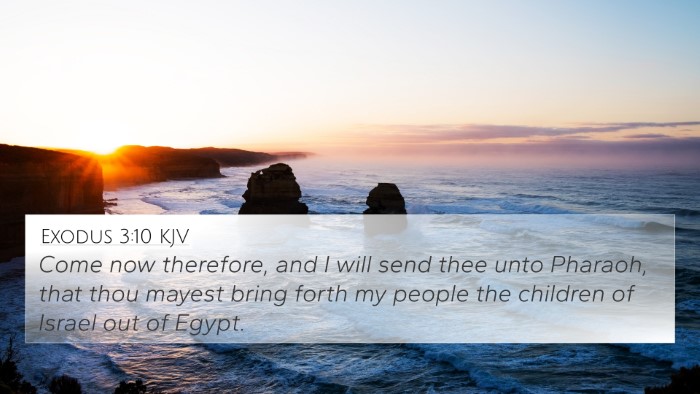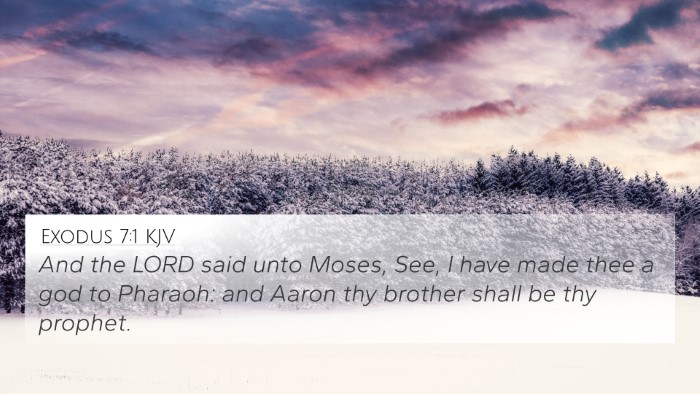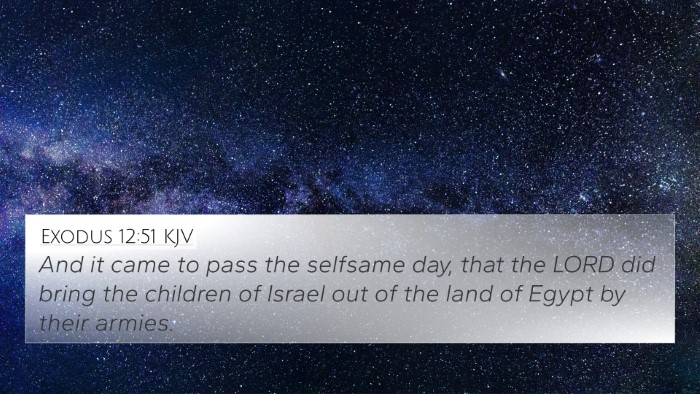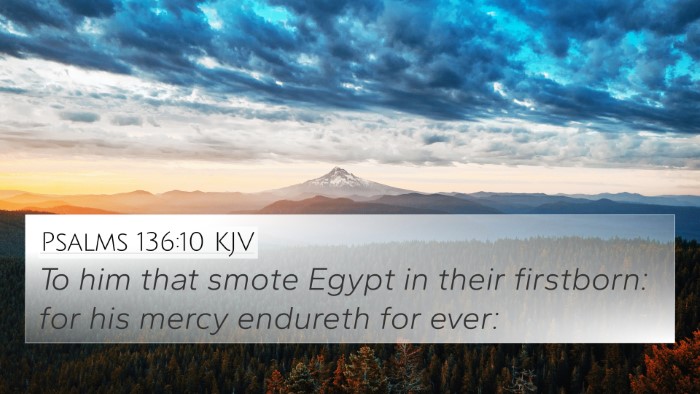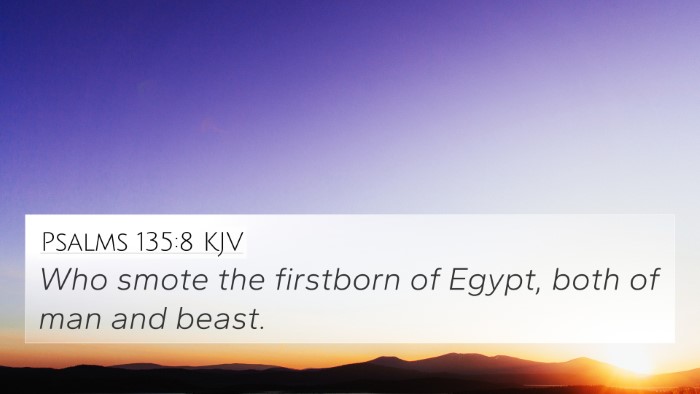Understanding Joshua 24:5
Joshua 24:5 states: "I sent Moses also and Aaron, and I plagued Egypt, according to that which I did among them: and afterward I brought you out."
This verse encapsulates the pivotal moment in Israelite history when God sent Moses and Aaron to lead His people out of Egypt, showcasing His power and faithfulness. The themes of divine intervention, deliverance, and covenantal faithfulness are vividly present here.
Summary of Insights from Commentaries
Matthew Henry's Commentary
Henry emphasizes the act of God's sovereign will in choosing Moses and Aaron to deliver His people. He highlights that God's plagues were not arbitrary but were vehicles of His mighty strength, showcasing His authority over Egypt—this connection is an essential aspect in understanding the context of the Exodus.
Albert Barnes’ Notes
Barnes notes the significance of God's declarations by recounting His acts in Egypt, which serve to remind the Israelites of their history and instill a sense of reverence and obedience to God. The passage signifies God's active presence in history and His purpose in choosing leaders for His people.
Adam Clarke’s Commentary
Clarke discusses the nature of God's providential care in these events, stressing that His judgments on Egypt were also lessons for Israel. He indicates that understanding the past is crucial for the obedience required in the present, ensuring that the Israelites recognize their identity as a people chosen and freed by God.
Thematic Connections and Cross-References
The verse provides an opportunity to explore various themes and connections between scriptures:
- Exodus 3:10 - God's commission of Moses aligns with the sending of Aaron, illustrating divine choice and appointing leadership.
- Exodus 12:12 - The plagues in Egypt point to God's battle against false gods, emphasizing His sovereignty, as noted in Joshua 24:5.
- Deuteronomy 4:34 - This verse highlights God's acts in delivering Israel, connecting to the plagues and presents God's mighty deeds.
- Psalm 77:14 - The psalmist recalls the wonders God performed, reinforcing His ongoing involvement in Israel's history.
- Isaiah 63:11 - Refers back to Moses and relates the providence shown in Israel's deliverance from Egypt.
- Luke 9:35 - A New Testament affirmation of God’s affirmation of His chosen leaders, paralleling Moses’ chosen role.
- Acts 7:35 - Stephen references Moses' role in leading the Israelites, drawing a connection between the Old and New Testament.
- Romans 9:17 - Paul refers to God raising Pharaoh to demonstrate His power, echoing themes from Joshua's recounting of the Exodus events.
- Hebrews 11:28 - Highlights the faith of Moses in acting according to God's command, showcasing the importance of belief in action.
- 1 Corinthians 10:1-2 - Paul references the Israelites’ baptism into Moses, further exploring the connection between their Exodus experience and Christian faith.
Interpreting the Verse through Cross-Referencing
This verse serves not only as a historical account but also establishes a theological foundation for understanding God’s method of delivering His people. By utilizing cross-referencing, readers can see the broader narrative of Scripture where deliverance, covenant, and divine appointment are recurrent themes. Such comparative Bible verse analysis can enhance one's study and appreciation of the scriptures.
Tools for Bible Cross-Referencing
For further study on cross-referencing biblical texts, consider the following tools and methods:
- Bible Concordance: A comprehensive list of words and phrases that appear in the Bible, allowing for easy tracking of themes and concepts.
- Bible Cross-Reference Guide: A tool that connects related scriptures, aiding deeper understanding of biblical themes.
- Cross-Reference Bible Study: Methods for connecting verses during personal study, enhancing insights into God's work across the texts.
- Bible Reference Resources: Helpful study materials, including commentaries and guides, for linking Bible scriptures.
Conclusion
Joshua 24:5 serves as a poignant reminder of God’s unwavering commitment to His people. Through cross-referencing and thematic connections, readers can deepen their understanding of these pivotal moments in biblical history and explore the implications in their own faith journeys. This verse is not just a reflection of past events but a continued call for believers to recognize God's mighty work and to respond in faithfulness and obedience today.
